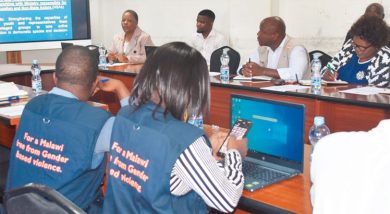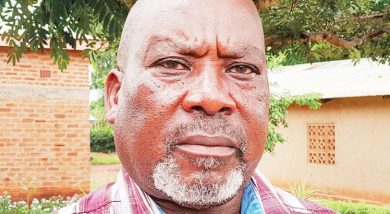Fears over May 21 polls
There is growing anxiety over the credibility of the Tripartite Elections after the Malawi Election Commission (MEC) removed the monitoring function from civil society organisations (CSOs) accredited to take part in the May 21 polls.
The accredited CSOs have now only been left with the observer status, as the monitoring role will be confined to the contesting political parties and independent candidates.

While some CSOs, political parties and analysts have expressed fears with the new system, the commission has defended it, arguing that the decision will not affect outcome of the elections.
Monitors ensure that electoral legislation, regulations and codes of conduct are obeyed towards creating a free and fair election while observers only observe, record incidences and anomalies relating to the elections and prepare a report to MEC.
Monitors can also intervene if they detect an anomaly or any challenge relating to the electoral process. During previous elections, CSOs’ monitors could suspend the process until an irregularity is rectified.
While MEC director of media and public relations Sangwani Mwafulirwa could not clearly justify what prompted the new arrangement, he said all preparations relating to monitors were on course as parties and candidates were submitting names of their monitors and “the response is very satisfactory”.
“Most are putting two monitors per stream and there are indications that there won’t be a centre without monitors by contesting political parties or candidates,” he said on Thursday.
But the National Initiative for Civic Education (Nice), a key electoral stakeholder during some previous polls, said the change will have an implication as the observer status means CSOs will have no mandate to intervene whenever electoral anomalies are encountered in the centres.
“These observer reports do not add any value to the on-going elections. They are meant to improve the next elections and by not intervening it means they cannot bring immediate change or corrections while monitoring can make a difference because a monitor has the mandate of intervening if there are anomalies,” said Nice executive director Ollen Mwalubunju in a written response.
He observed that monitors become crucial in bringing corrective measures from MEC and other stakeholders.
Mwalubunju also doubted the capability of political party monitors because, he said, based on experience from previous elections, most of them “are poorly trained and not motivated”.
“Hence, it will be difficult for them to detect anomalies which need the party monitors’ coverage is mostly not as comprehensive as the CSOs’ monitors.
“Therefore, we feel this decision should be rescinded since it will negatively affect the freeness, fairness and credibility of the elections because election monitoring enhances accountability and transparency,” he said.
There are 5 002 polling centres and 193 plus five constituency tally centres across the country.
MEC chairperson Jane Ansah said on Tuesday, during the opening of official campaign, that each contesting political party and independent candidate would be allowed a maximum of two monitors per polling stream and two monitors at the constituency tally centre.
Political scientist Ernest Thindwa from University of Malawi’s Chancellor College blamed MEC for its decision, arguing that it would reduce people’s trust in the electoral process.
While the United Democratic Front (UDF) welcomed the new procedure, saying the party had no problem with it, the People’s Party (PP) felt the previous status quo enhanced transparency and standing of the polls.
UDF secretary general Kandi Padambo believed the new system would enhance the perceptions of whether the elections are free and fair following the 2014 elections where some CSOs were accused of being partisan.
Spokesperson for the governing Democratic Progressive Party (DPP) Nicholas Dausi said he was not aware of the new system and needed to consult.
But Malawi Congress Party (MCP) secretary general Eisenhower Mkaka described MEC’s decision as a “mixed bag”.
Executive director of the National Elections System Trust (Nest) Unandi Banda said the new approach has technically removed CSOs’ powers and say on the electoral process.
“The commission was not supposed to make that ruthless decision unilaterally. Of course, by law, they are the managers of the elections in the country but they were supposed to consult us as stakeholders,” said Banda, who has taken part in all the country’s elections since 1994, but in different capacities.





